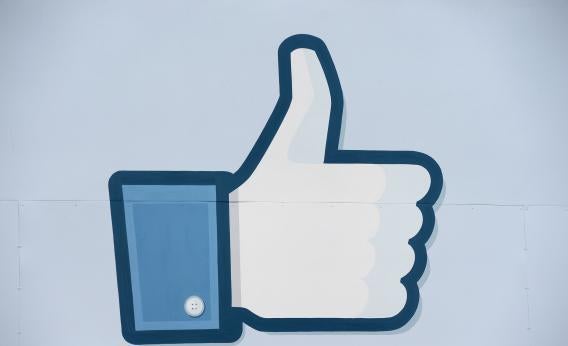When someone posts sad news to Facebook—the illness or death of a loved one, the loss of a job—or shares one of life’s little annoyances, like a particularly frustrating coffee spill, the sympathetic responses frequently include some variation of, “That’s why we need a ‘dislike’ button.”
For the devoted disliker, there are some options, like the Hater app and browser extensions. They are poor substitutes, but they’ll have to do, it seems. When Bob Baldwin, a Facebook product engineer, took part in an Ask Me Anything on Reddit on Tuesday, someone wondered whether we’ll ever see a “dislike” button. Baldwin responded:
“Actions on Facebook tend to focus on positive social interactions. Like is the lightest-weight way to express positive sentiment. I don’t think adding a light-weight way to express negative sentiment would be that valuable. I know there are times when it’d make sense, like when a friend is having a rough day, or got into a car accident like my sister yesterday (she’s okay!). For these times, a nice comment from a friend goes a long way.”
Baldwin is right that a few words of support would likely mean more to a sad Facebook friend than hitting a “dislike” button. But there’s another reason why we don’t need “dislike”: On Facebook, “Like” doesn’t mean like anymore.
At its light-weight heart, pushing the button really says “I hear you,” “Uh-huh,” “I acknowledge this,” or “Yup.” It says, “I read this and thought about it for a second.” Frequently, or even most of the time, genuine feelings of positivity are a big part of the “I acknowledge this”—you do like the photo from your friend’s vacation or her witticism about her subway trip home. But genuinely liking it isn’t the driving force behind the click—the motivation is to let the person know that you looked and considered, rather than skimming past her posts to find a cute cat video from someone else.
If we can accept that the “like” button is really about letting someone know that you acknowledge what they posted, then we can dispense with the “dislike” chatter that has been going on since Facebook unleashed the thumbs-up in February 2009.
You can dislike the idea all you want, but since Facebook won’t be giving you the thumbs-down any time soon, you might as well acknowledge it.
Via BetaBeat.
